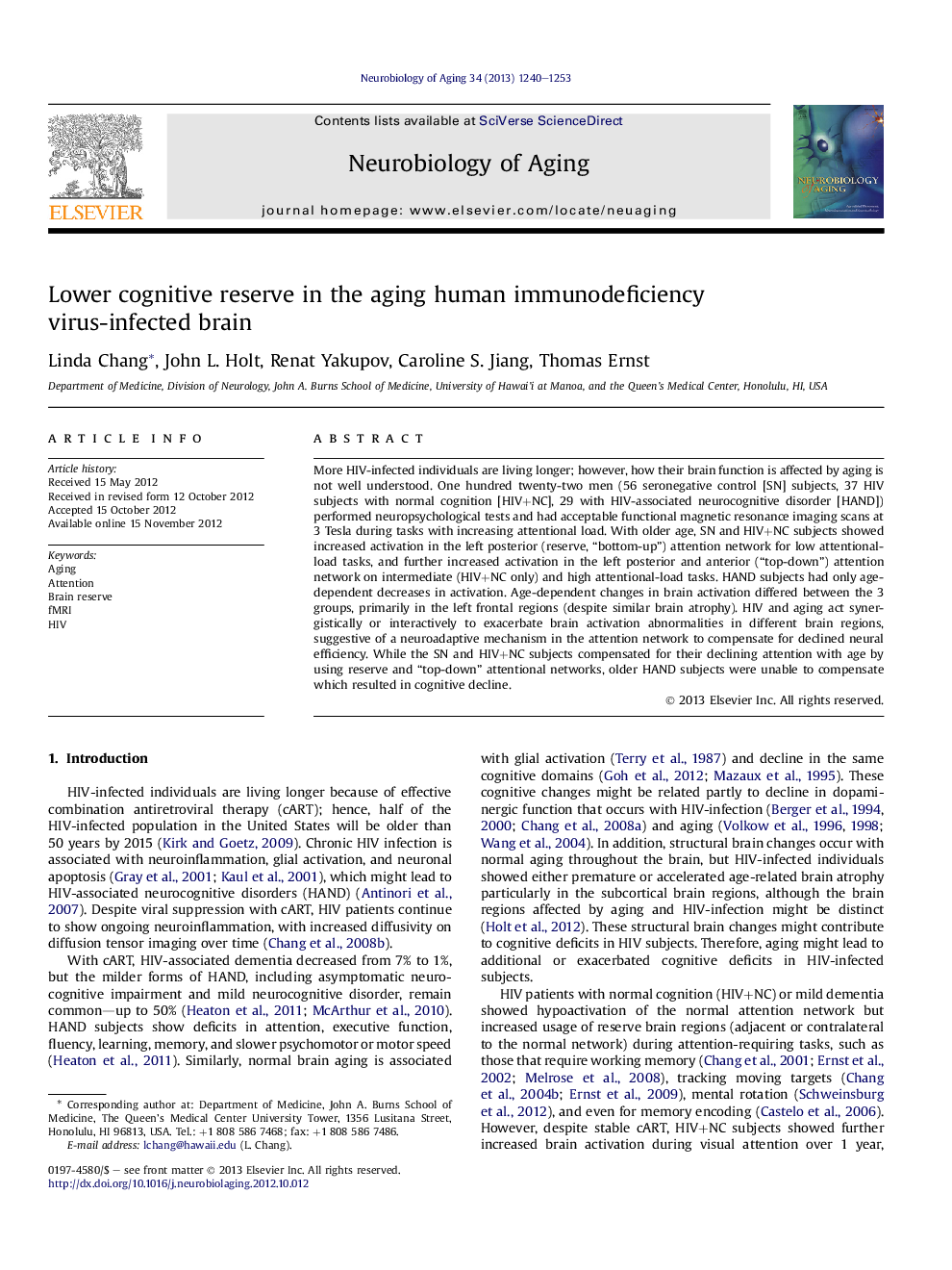| کد مقاله | کد نشریه | سال انتشار | مقاله انگلیسی | نسخه تمام متن |
|---|---|---|---|---|
| 6807717 | 1433584 | 2013 | 14 صفحه PDF | دانلود رایگان |
عنوان انگلیسی مقاله ISI
Lower cognitive reserve in the aging human immunodeficiency virus-infected brain
ترجمه فارسی عنوان
کاهش ذخایر شناختی در مغز آلوده به ویروس نقص ایمنی بدن انسان
دانلود مقاله + سفارش ترجمه
دانلود مقاله ISI انگلیسی
رایگان برای ایرانیان
کلمات کلیدی
موضوعات مرتبط
علوم زیستی و بیوفناوری
بیوشیمی، ژنتیک و زیست شناسی مولکولی
سالمندی
چکیده انگلیسی
More HIV-infected individuals are living longer; however, how their brain function is affected by aging is not well understood. One hundred twenty-two men (56 seronegative control [SN] subjects, 37 HIV subjects with normal cognition [HIV+NC], 29 with HIV-associated neurocognitive disorder [HAND]) performed neuropsychological tests and had acceptable functional magnetic resonance imaging scans at 3 Tesla during tasks with increasing attentional load. With older age, SN and HIV+NC subjects showed increased activation in the left posterior (reserve, “bottom-up”) attention network for low attentional-load tasks, and further increased activation in the left posterior and anterior (“top-down”) attention network on intermediate (HIV+NC only) and high attentional-load tasks. HAND subjects had only age-dependent decreases in activation. Age-dependent changes in brain activation differed between the 3 groups, primarily in the left frontal regions (despite similar brain atrophy). HIV and aging act synergistically or interactively to exacerbate brain activation abnormalities in different brain regions, suggestive of a neuroadaptive mechanism in the attention network to compensate for declined neural efficiency. While the SN and HIV+NC subjects compensated for their declining attention with age by using reserve and “top-down” attentional networks, older HAND subjects were unable to compensate which resulted in cognitive decline.
ناشر
Database: Elsevier - ScienceDirect (ساینس دایرکت)
Journal: Neurobiology of Aging - Volume 34, Issue 4, April 2013, Pages 1240-1253
Journal: Neurobiology of Aging - Volume 34, Issue 4, April 2013, Pages 1240-1253
نویسندگان
Linda Chang, John L. Holt, Renat Yakupov, Caroline S. Jiang, Thomas Ernst,
